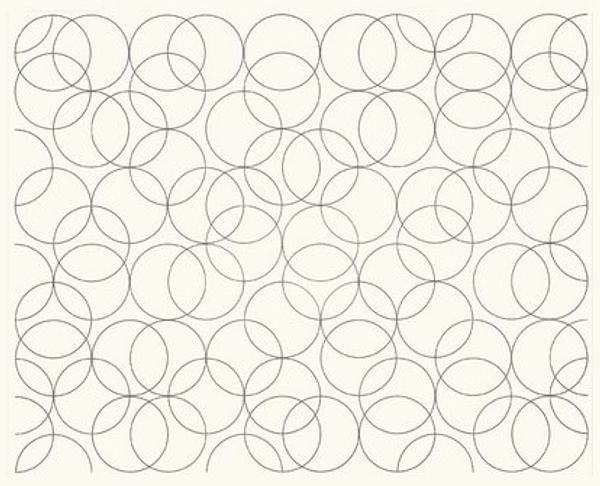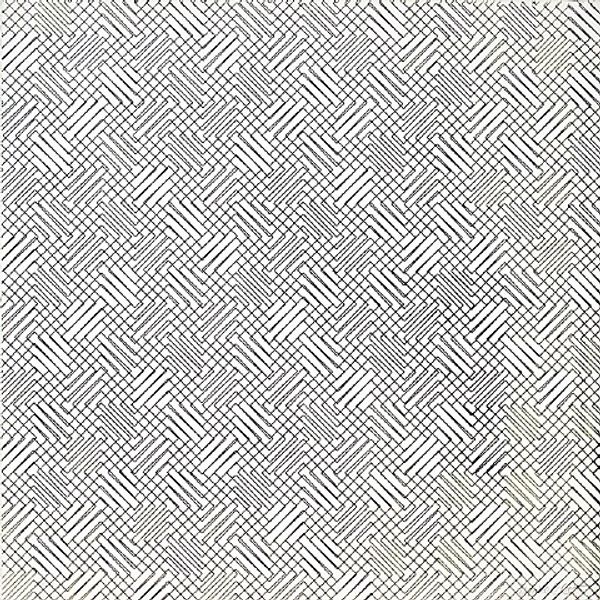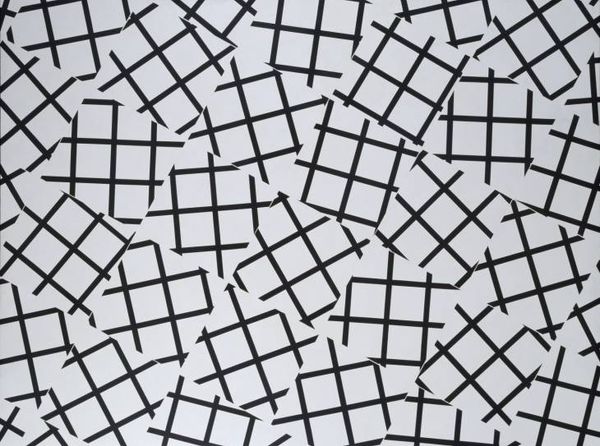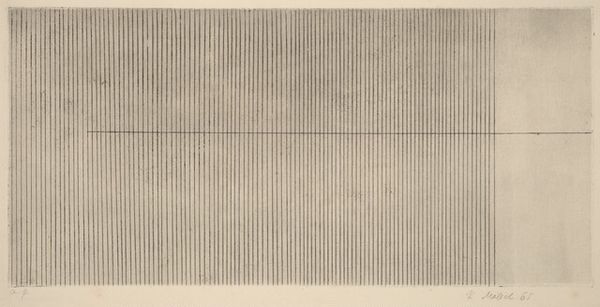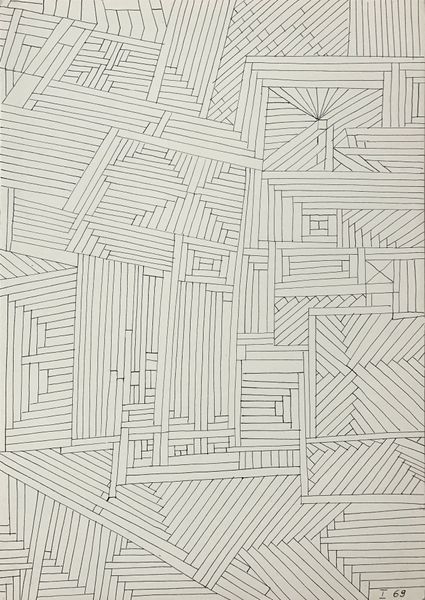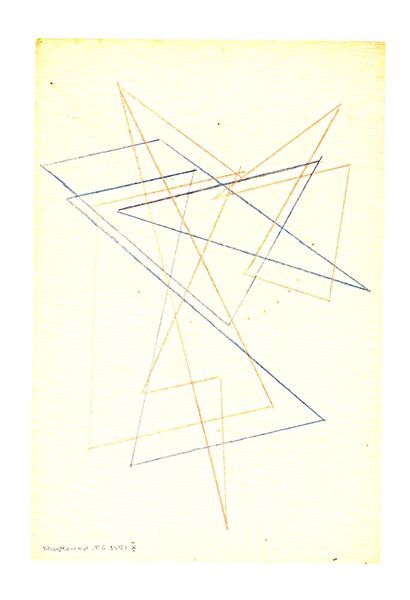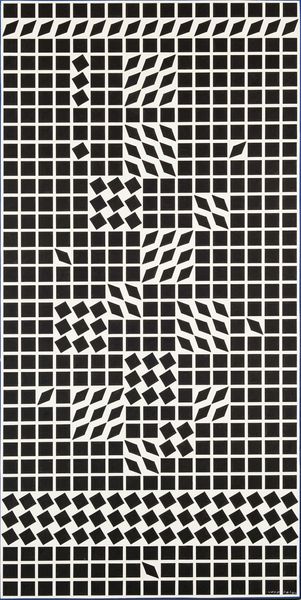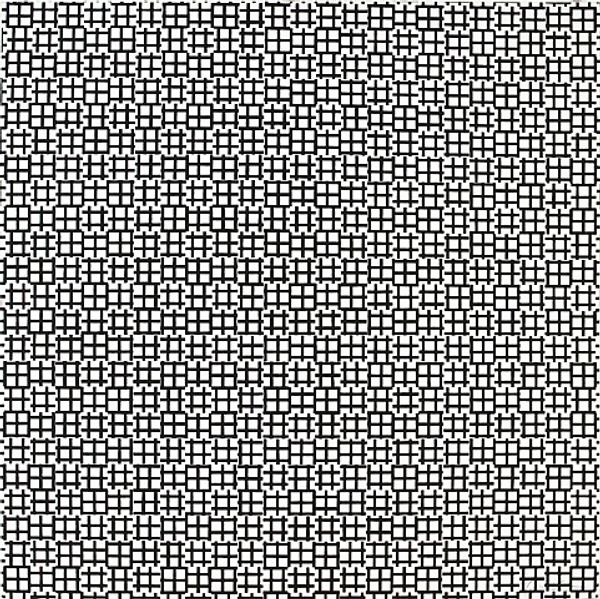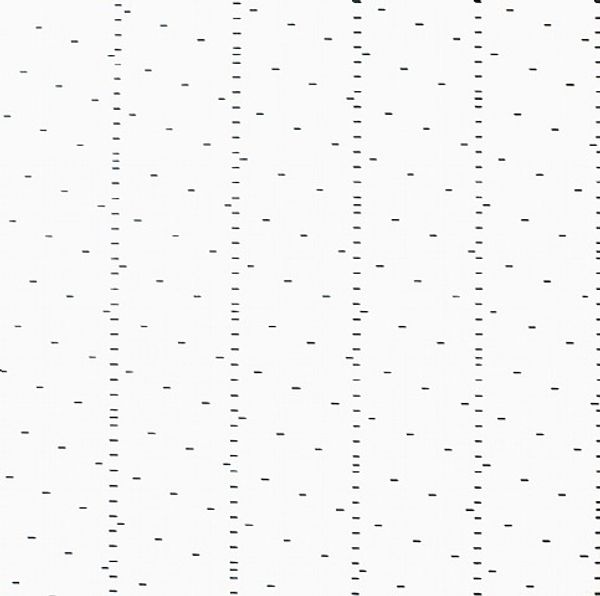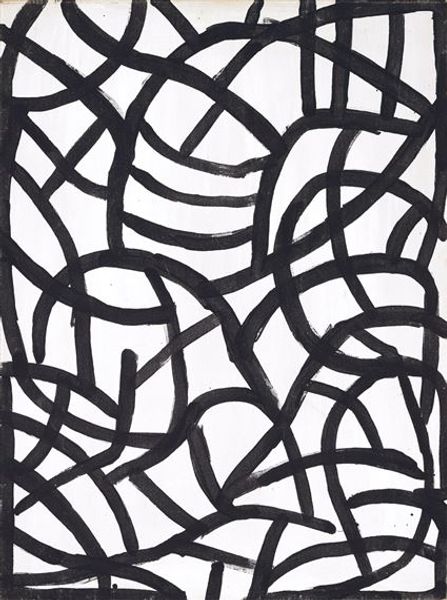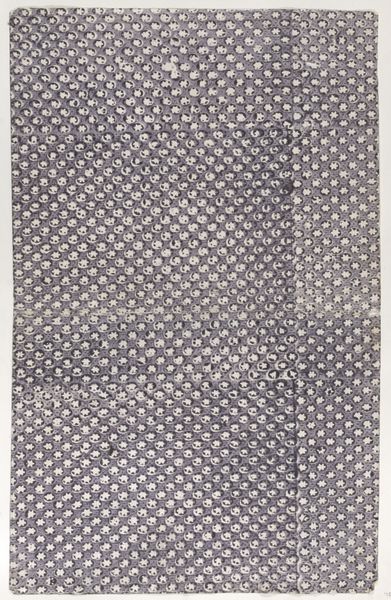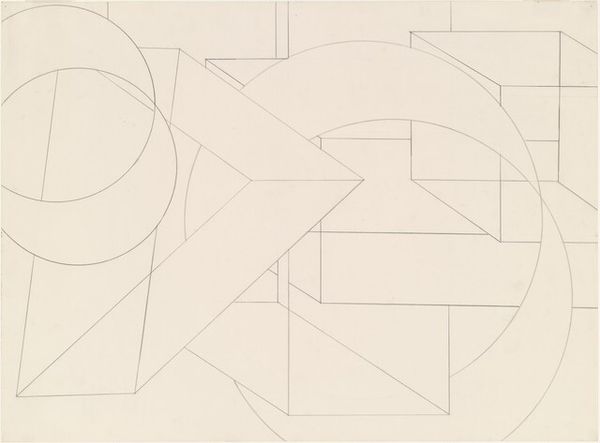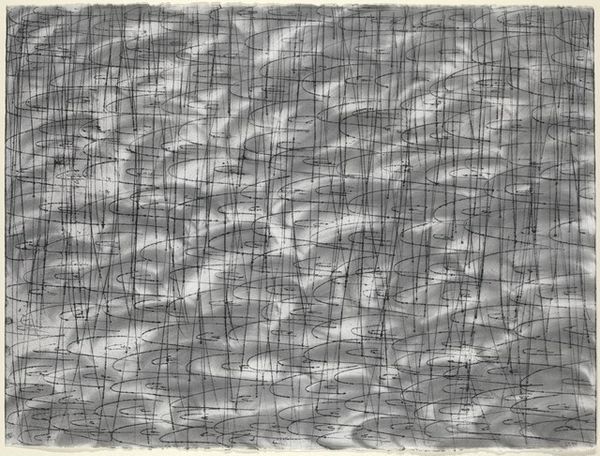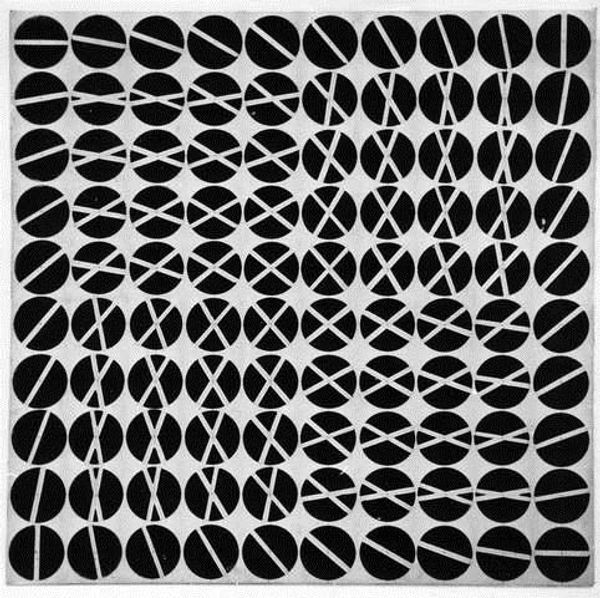
#
abstract-expressionism
#
op-art
#
pattern
#
op art
#
geometric pattern
#
organic pattern
#
geometric
#
geometric-abstraction
#
line
Copyright: Gego,Fair Use
Editor: This is Gego's Untitled from 1969. It's essentially a network of lines forming triangles on a pale background, simple yet really mesmerizing. How should we interpret it? Curator: From a materialist perspective, I think it's important to look at the process here. Consider the repetitive, almost industrial act of creating this network of lines. It's drawing, but it also resembles something manufactured. How does this piece challenge the boundary between the handmade and the mass-produced? Editor: I see what you mean! It’s drawn, yet feels… engineered. But if it was supposed to feel 'mass produced' why include subtle imperfections in some of the triangle shapes? Curator: Precisely! These imperfections reveal the artist's hand, and prevent the piece from being sterile, don’t they? We must also consider the context of 1969. What were the major socio-economic forces at play in Venezuela, Gego's home, at the time? How might those have impacted her choice of materials and artistic process? Editor: Venezuela in '69… I guess the oil boom was underway, influencing practically every aspect of life… maybe this drawing speaks about the intersection of industry and society, as if this imposed an unrelenting rhythm and fractured social structure on individuals? Curator: Yes, the grid could be seen as an attempt to impose order onto something much more unruly: life under those conditions! Furthermore, considering it’s ‘just’ pencil and paper, what commentary could this offer about accessibility to the means of artistic production and consumption during that period? Editor: So it’s not just abstract form, it’s actually engaging with the social reality of the time. I hadn't considered that! Curator: Exactly! Analyzing art through a materialist lens opens a new discussion of what labour looks like within a community, or simply invites us to re-consider accessible mediums. Editor: Thanks, this gives me so much to think about – it is about more than lines on paper!
Comments
No comments
Be the first to comment and join the conversation on the ultimate creative platform.
